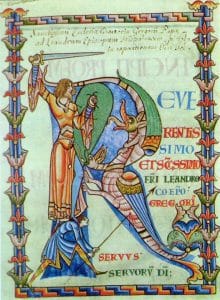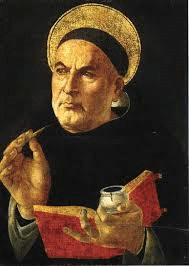The contested doctrines are almost always some of the hardest to live by. This is not because they are difficult, but because they are contested. When a doctrine falls into the contested realm and Catholics are forced to defend it, there is an almost innate tendency to treat the doctrine as an intellectual problem and not as a saving truth. One example of this comes to mind and is particularly apropos for the season—Purgatory. Since Luther’s revolt, Catholics have spent so much time on their heels defending its existence, that they haven’t always lived as if it does. There are two main reasons for this.
The first is that we have not spent enough time meditating upon death. Memento mori the desert fathers and early Christians were fond of saying, not just as a mere platitude, but because death is a fact of life. Meditating on our own death is of course fruitful, but when it comes to living as if Purgatory exists it may be best to focus on those we know who have died. All too often we are quick to canonize the dead and thus ignore the reality that if they were saved then they needed purgatorial purification to get there.
Praying in Faith, Hope and Love
To speculate on the destiny of loved ones who have died is not being “judgmental”. But it is presumptuous not to. In the majority of cases, we will have known the person well enough to know (at best) that they weren’t yet perfected. It is uncomfortable to think this way, but it is necessary because Purgatory then becomes the realistic basis for our hope that they were saved.
And it is hope that can animate our prayers for them. CS Lewis in A Grief Observed said he never really, really believed in Purgatory until his wife died. Then he prayed with fervent hope that she would be purified so as to come quickly into the presence of God. His belief in Purgatory took flesh because he realized his beloved still needed his help through prayers and penances.
Meditating on the sufferings of the souls in Purgatory and being able to put faces on those otherwise general mass of suffering souls makes Purgatory a real doctrine. Our prayer comes alive and with it, our faith in the doctrine itself. Praying in faith, strengthens our faith. Praying for suffering people increases our charity. Knowing that they are approaching perfection increases our hope. Those faces don’t need to be someone we know. They can also be aimed at people in specific circumstances: “I pray for the soul that has entered Purgatory most recently”, “I pray for the soul who most loved Our Lord in the Eucharist”, “I pray for the soul who is most abandoned”, etc. We might not know them personally now, but we will have gained a friend in eternity.
Undergoing Purgatorial Purification?
I mentioned above that we can be sure that our loved ones undergo purgatorial purification. That is because, short of the Virgin Mary, everyone, even canonized saints underwent purgatorial purification. Many of them underwent them in this life rather than in the next. And herein lies the other way in which we might come to true faith in the doctrine of Purgatory: ask to undergo those sufferings now.
This begins by once again meditating upon the sufferings of Purgatory. The pains of Purgatory are very similar to those of hell. Although the person is completely in love with God, they experience a pain of loss in the knowledge that their sins and their momentary delight was traded for time with the Beloved. Likewise they experience a pain of sense in that they are “saved through fire” (1Cor 3:11). Cut off from uniting their suffering to the merits of Christ, they must suffer “alone” to heal the stains of their forgiven sins. Now the face we put on it must be our own. We must imagine how great the suffering is.
After doing this, we trade that suffering for suffering now. The suffering now is different in that the pain of loss is felt less severely because it is in a certain sense natural. Likewise the pain of sense is less because our sufferings can be united to those of Christ. The obstacle of course is that we lack the courage to make this bargain. It feels really scary to give God carte-blanche over our sufferings. But we must remember that God is not a masochist but a Father Who disciplines in the wise and gentle way. Our sufferings now, especially those dealt by Providence, are the most wise and gentle sufferings, hand-chosen by God in order to purify us. Jesus told St. Faustina that He rather there not be Purgatory because He will send enough suffering, that united to His, will purify us, without the need for Purgatory.

But there is another aspect of this that we all too often forget. The holy souls in Purgatory are suffering greatly, but they are also filled with joy. This is important for us to remember because the reason we are hesitant to give this to God is because we are focused only on the suffering part. But the suffering is just a means to the end of closer union with God. Suffering is the gravity that thrusts us into the Heart of God. It takes away all of the impediments to drawing closer to Him provided we will to suffer the things He sends through His Providence. St. Catherine of Genoa speaks of how the pains in Purgatory is occasioned by love delayed. By allowing our purification to happen now, that love will be less delayed.


















